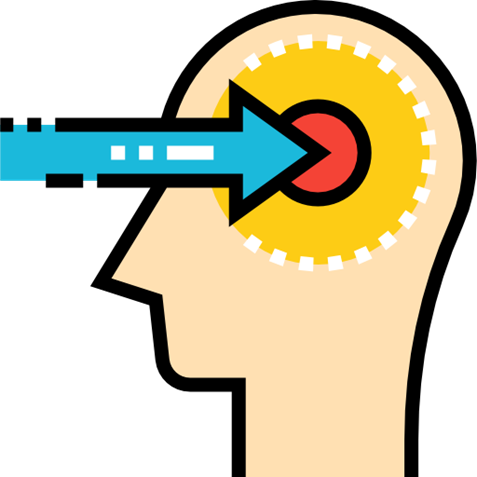Perception and Hallucinations
Click a link for more information: Discussion Questions Sensory Stimulation Activities
Background Information

Our senses, such as hearing, taste and touch all help us to understand the world around us. However, for many people living with dementia or memory problems, the brain can misinterpret information from their senses. This therefore can change their perception, leading to them seeing the world differently to others.
The process of how the brain is wired means that it uses the information from sense organs, such as hearing and touch, and uses information that is already in the brain, such as memories to go alongside it. Dementia slows this process down, and therefore can lead to misperceptions, misidentifications, hallucinations, delusions and time-shifting.
Misperceptions happen when the person sees one thing as something else. For example, mistaking blue floor tiles for water.
Misidentifications happen when the person has problems identifying specific objects and people. For example, mistaking their son for their husband.
Hallucinations are an experience of something that is not really there. It can involve any or all of the senses. Visual hallucinations are the most common type for those living with dementia, for example seeing flashing lights or people.
People living with dementia can experience hallucinations differently to another person living with dementia:
- Tactile Hallucinations are when someone physically feels something that isn’t there, e.g. being touched.
- Auditory hallucinations are when someone can hear something that isn’t there, e.g. footsteps.
- Gustatory hallucinations are when someone can taste something that isn’t there, e.g. a metallic taste.
- Olfactory hallucinations are when someone can smell something that isn’t there, e.g. smoke.
If you care for someone with regular hallucinations it is important to make sure their GP is aware, and that the person living with dementia has regular medication reviews because new, or a combination of, medications can cause hallucinations.
The underlying cause of delusions in dementia is someone's inability to put information and memories together. Delusions can take place in the form of paranoia, which may make the person feel threatened even if there is no reason for them to feel this way. Delusions split into two types:
- Where they identify a situation as being wrong e.g. a carer is there to rob their house.
- Where they believe people are there to do harm, e.g. someone is trying to steal their money.
For someone experiencing delusions, the belief is true to them, even if it’s not true to us. Acknowledging their distress, talking to them, offering an alternative explanation for them can help to reduce further distress. Offering distraction, stimulating activities, and social get togethers, can all help to reduce delusions.
Time-shifting is when a person’s experience is that they are living at an earlier time in their life. A person living with dementia often has problems with their short term memory, meaning they rely on older memories to make sense of the world around them. Common experiences for people who have problems with time-shifting:
- Not recognising themselves in the mirror as they believe they are much younger.
- Having problems using newer technology such as a kettle, in previous years they may have boiled water using a hob.
- Not recognising their adult children as they believe they are much younger.
Removing mirrors at eye height could benefit someone experiencing time-shifting as it reduces the chances of them becoming disorientated with the sight they see in the reflection. Try to find out about their past, to understand how they interpret their present, and encourage engagement in meaningful occupation. E.g. if someone used to run a bed and breakfast, they may enjoy setting the table up.